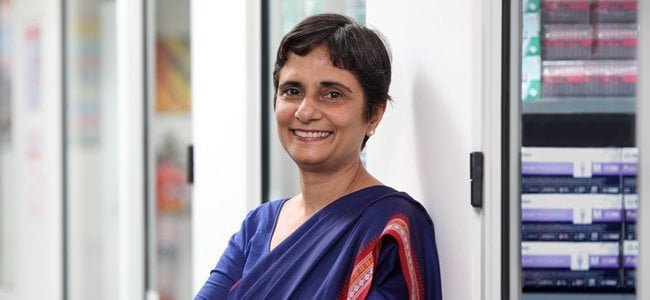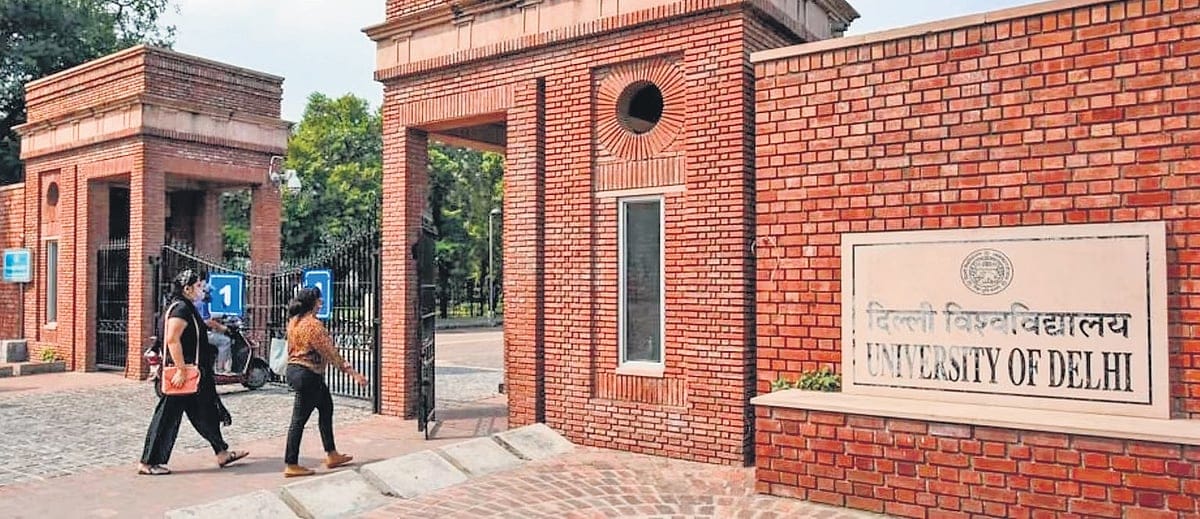The incumbent Executive-Director of the Translational Health Science and Technology Institute (THSTI) Faridabad, Doctor Gagandeep Kang became the first-ever Indian woman to have earned the most-coveted laurel, designation and distinction in academia, having the fellowship of the Royal Society, conferred upon her, on April 17, 2019.
Dr. Kang is a pioneering scientist in India, with her core research specialisation being in the field of viral contamination and deterrents in children, and the testing of rotaviral vaccines. She played a pivotal role in devising and developing an avant-garde vaccine to equip India against Rotavirus.
The clinician and biologist has thus become the first and only Indian female to have been elected to the prestigious Royal Society, an institution-of-esteem.
The foremost reputed, historically primemost and utmost-established scientific academy in Europe, has never had a female of Indian nationality in 360 years.
She played a pivotal role in devising and developing an avant-garde vaccine to equip India against Rotavirus.
Gagandeep Kang FNA, FASc, FRS is also Professor in the Department of Gastrointestinal Sciences at the Christian Medical College, Vellore, India and is currently the executive director of the Translational Health Science and Technology Institute, Faridabad, an autonomous institute of the Department of Biotechnology, Ministry of Science and Technology, Government of India. According to Infosys-Science-Foundation, she also works on other enteric infections and their consequences when children are infected in early life, sanitation and water safety. She was awarded the prestigious Infosys Prize in Life Sciences in 2016 for her contributions to understanding the natural history of rotavirus and other infectious diseases.
Also read: 10 Women In STEM Whose Innovation In 2018 Deserves Your Attention
Kang was instrumental in spearheading findings directly relevant to alleviation of enteric ailments that vastly plagued infants in India until the 90s. Her research was crucial in the disciplines of epidemiology and paediatrics, as well as indirectly pertinent and pathbreaking to a number of medical and pathological subdisciplines. Her research was immensely socially relevant and consequential on a ground-and-masses-scale. Her pragmatically-contextual biological insights have helped save millions of children till date. Her work has helped frame crucial Health, and Women and Child departments’ policymaking, and instrumentally influenced legislations to accommodate for unforeseen factors, particularly amongst the rural underprivileged. Her vocal advisory role to the administrative framework, over the decades, has been remarkable.
An alumnus of the CMC Vellore, she has performed her postdoctoral research at the Baylor College of Medicine, Houston.
She has published over 300 scientific papers and is on editorial boards for several journals, including PLoS Neglected Tropical Diseases, Current Opinion in Infectious Diseases and Tropical Medicine and International Health. She is on many review committees for national and international research funding agencies, and has served on several advisory committees mainly related to vaccines, including India’s National Technical Advisory Group on Immunisation, the WHO’s Global Advisory Committee on Vaccine Safety and the Immunisation and Vaccine Implementation Research Advisory Committee. She chairs the WHO SEAR’s Regional Immunisation Technical Advisory Group (2015–present).
She is also the first Indian and the first ever woman to edit the Manson’s Textbook of Tropical Medicine.
Her work, attitude, and research temperament is intimately tied to social causes and bears a two-way implication to her research, directly pertaining to partaking sanitation drives, initiating preventive measures and undertaking institutional overhaul. Doctor Kang depicts as much administrative, institutional, pedagogical, philanthropic and social-servitude merit, as her academic and scientific. Her work has been comprehensive, and invariably tied to life-standard reform and facilitation. Her research has proved immensely utilitarian, in addition to pinpointing, revising and rewriting causatives. Her novel work has never been limited to labs, alien to the field, and averse to the statistics: yet has revolutionarily contributed to the very foundations and dogmatic plinth of pathology, in a vast multitude of ways.
She has garnered numerous distinguished accolades in her vast repertoire including the 2006 Woman Bioscientist of the Year, the 2014 Ranbaxy Research Award for medical research. In addition to these, she’s a recipient of the Indian Society for Gastroenterology’s Abbott Oration Award, Indian Academy of Tropical Parasitology’s Dr. S. C. Parija Oration Award, and Indian Council of Medical Research’s Dr. Y. S. Narayana Rao Oration Award. Preceding her achievement, she has also been a Fellow of The Royal College of Pathologists London, that of American Academy of Microbiology, and of the Indian Academy of Sciences, the National Academy of Sciences, and the Indian National Science Academy. She is also the first Indian and the first ever woman to edit the Manson’s Textbook of Tropical Medicine.
The abject lack that belies this feat exposes intersectional faultlines amongst the occidental elite and inaccessibility and disregard, if not passive ostracisation of multifold prejudiced identities, from top-notch intellectual circles and cliques. It also debunks the recent impetuous attempts at linking lack of statistical gender equity in STEM to an inherent gender dimorphism, by fabricating an unsound substantiation, that hints at an inherent biological, congenital lack of analytical acumen in women, by nature, at the expense of better memory. This trend-generalisation has been used to justify the observed gender gap, nay, abyss, and attribute it to sexual dimorphism exhibited as such.
Also read: Do Men In STEM Hate Women? | #DesiSTEMinist
However, this approach itself is unscientific, as it is based on superficial and symptomatic analysis, attributing statistical prevalence to arbitrary causatives and committing the prevalent fallacy of mistaking coincidence for correlation. In fact, the inwards-out approach, i.e. identifying causes and then explaining effects and observations based on them, merely confirms the obvious: subconscious, spontaneous and systematic prejudice, insecurity, disregard and patronisation of women from academic, particularly scientific circles, institutions and communities, and prejurisdiction which blatantly takes unilaterally imposed role-typecasting for ineptitude.
References
1. Indian Express
2. Infosys Science Foundation
3. Times Of India
4. Twitter
5. Indian Express
6. Royal Society
Featured Image Source: Qrius
About the author(s)
Pitamber Kaushik is a columnist, journalist, writer and aspiring knowledge curator. He is a fervent environmentalist and identifies as Utopian Socialist.




